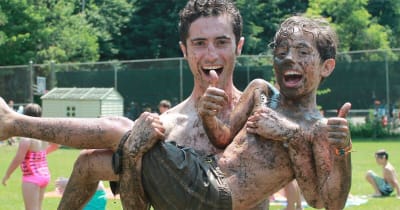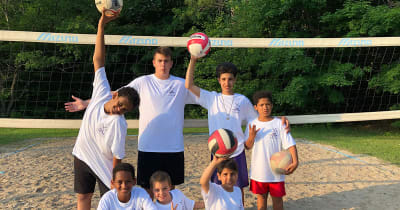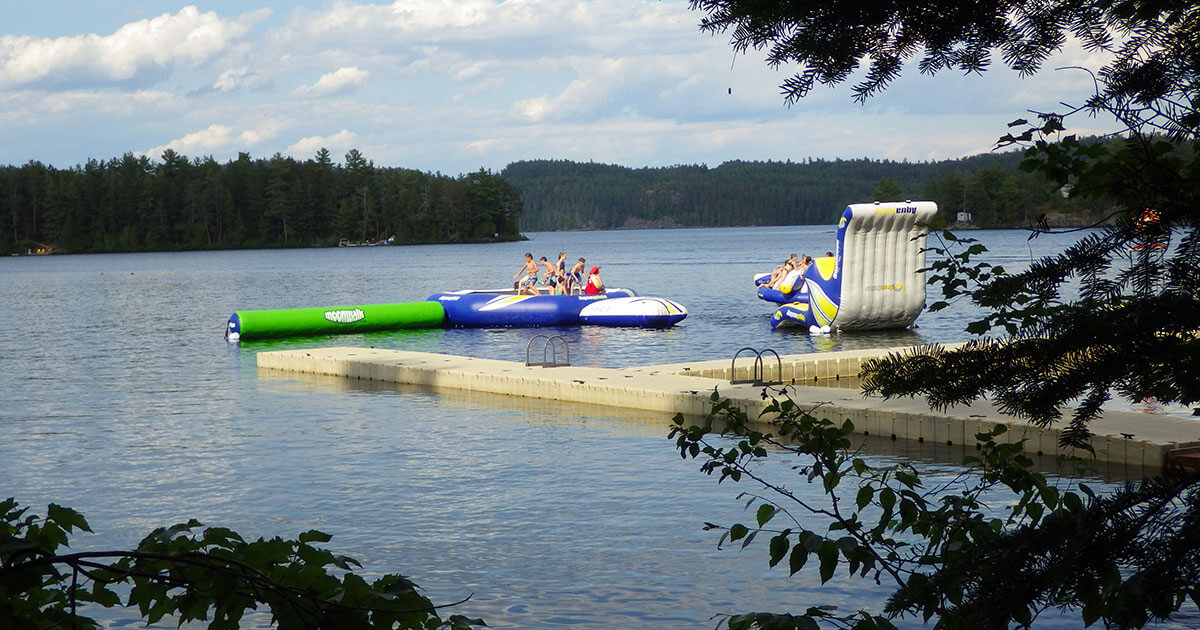Karate schools and lessons near you
We list karate teachers from across the country. Find your city in the list below and browse programs in your area.
Search karate classes in ANY CITY
More than just after-school classes
For kids who love karate, there are many different ways you can indulge in this martial art. See related options below:
Search ALL KARATE CAMPS AND PROGRAMS
What your child will learn in karate class
This is what kids learn in classes. Consult with individual classes linked to above, to find out what each offers.
Self-defense techniques. Karate classes teach kids and teens strikes, kicks, blocks, flexibility, increased reflexes and confidence. Kids gain confidence in their abilities and feel less vulnerable. Karate class instructors give students drills and exercises that focus on perfecting techniques so they can advance through belts.
Discipline. Karate focuses on self-discipline. It might be said that this is its central teaching. Students practice in class but they also must practice katas at home and perfect their moves, in order to attain belts. Success is only gained through devoting personal time to physical training. Kids internalize the value of this and other personal traits they develop.
Character development. Karate directly teaches a number of character traits including respect. This will deepen children’s maturity. There are also some character growth byproducts of karate, including the development of generosity and empathy. There’s a moral component to this and other martial arts.
The benefits of karate classes
Here's a look at everything teens and kids gain from enrollment in karate school:
Activates the body and mind. Karate classes are a way for kids to exercise. Karate is more holistic than simply working out, though, as this discipline combines combat moves with a philosophy that focuses on mastery of the self. Through various regular drills that teach them self-defense, students engage every part of their body and mind.
Develops composure. Mastering self-control can take a lifetime but it can begin in karate class. Classes provide students with the right tools to stay both physically and emotionally disciplined. Expressing anger violently or out of spite is prohibited at all times, of course, and the ultimate goal is to teach children to resolve conflicts peacefully. Kids learn how to be composed in times of aggression and become peacemakers.
Reduces anxiety. Drills and exercises will be consistent between each class. The physical release is healthy, certainly, but during these times, kids build momentum and harness a rhythm with their movements. Performing katas gives them both a means to reduce personal anxiety and release pent-up emotions.
A supportive environment. Instructors pride themselves in assisting students as they grow into skilled individuals. Students in the class are also encouraged to be supportive, and everyone works together to help all achieve their goals.
They grow in independence and self-confidence. Knowledge of their increasing power and strength gives kids a quiet confidence in physical abilities. This can be especially helpful for young women. Kids also gain confidence as they achieve belts. Through all of this they learn the value of goal-setting and achievement, and they become more independent.
Leadership skills. As a result of the discipline and self-defense training that children undergo in these classes, they develop a set of leadership skills. Kids learn how to be responsible, how to communicate with others, how to analyze situations and problem solve, as well as how to instill hope and self-confidence within others. Mastering these skills, students will be given leadership opportunities in other aspects of their lives including school and work, and they’ll embrace those.
Questions to ask karate programs
Here’s a look at questions to ask karate schools, as you choose one for your child.:
- Are instructors trained in first aid or other lifesaving techniques in the face of an accident or injury?
- How long have instructors been teaching karate? How long have they been a student themselves?
- If kids must wear a gi (the karate uniform), can they bring their own? What is the cost?
- How much of the class is hands-on vs. instructional?
Discover related camps and programs
Martial arts camps include a variety of options that includes taekwondo, judo, and, of course, karate. Each art has a slightly different philosophy and emphasis, so you may find one that fits more closely with your personality and goals, etc. You can also find yoga camps, meditation camps on our platform.
Leadership camp. Karate classes pride themselves on developing character strength. Leadership camps deepen kids' understanding what it means to be a hardworking, supportive, and empowered leader.
Sports camp. Karate keeps kids active and encourages them to commit to a healthy regime. Sports camps uphold these values, while encouraging a combo of fitenss and fun. These camps boost adrenaline, release endorphins, and keep kids healthy, in sports as varied as soccer, basketball, football, and others.
Combine this with other information from our website:
Frequently Asked Questions
How many Karate classes are there?
There are 4 programs specializing in Karate. In addition, there are 1 programs offering karate as an activity. Use the filters to narrow by age and program type, then click on matched programs to see daily activities, dates, rates and registration information.
What are the fees to attend Karate classes?
Fees for Karate classes range from $130 to $550 per program (program types and lengths vary). Use the filters here to narrow programs by age and type.
What age do Karate classes start at?
There are programs available for children aged 4 through 16.
Where can parents meet with Karate classes?
Meet with program directors and staff at the Our Kids Camp & Program Expo. The Expo is held annually in February, and is a fun and informative day for parents, kids, and teens. Find event details and free tickets here.







